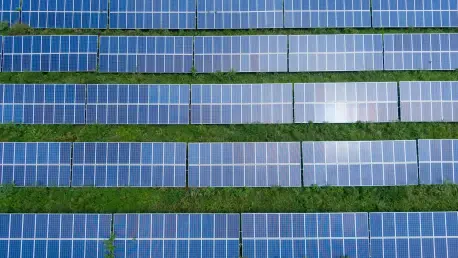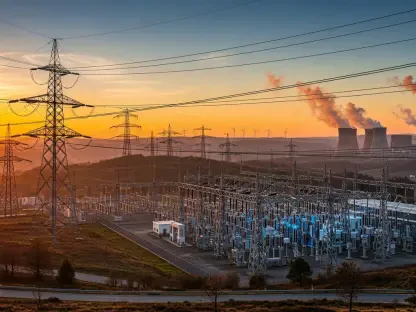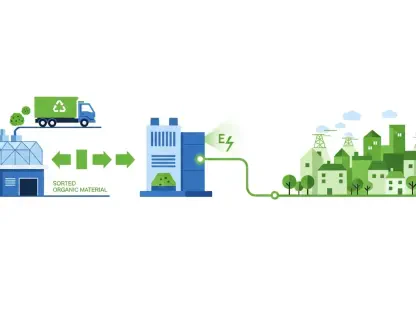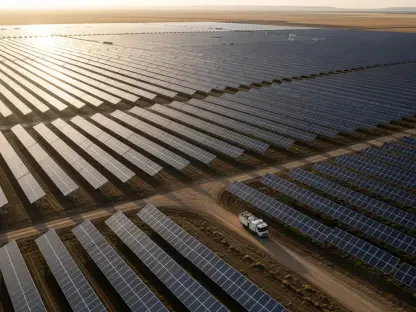In a groundbreaking move to transform the landscape of energy consumption across Europe, the European Union, in partnership with the European Investment Bank (EIB) Group, has unveiled a monumental €17.5 billion financing initiative to empower small and medium-sized enterprises (SMEs) in their pursuit of energy efficiency. This ambitious program, launched recently, targets over 350,000 companies, aiming to slash energy costs and bolster competitiveness through cutting-edge, sustainable technologies. With energy efficiency emerging as a critical pillar for economic resilience and environmental sustainability, this initiative promises to bridge a significant investment gap, particularly for SMEs that have historically lagged behind larger corporations in adopting green practices. The urgency to decarbonize and reduce operational expenses has never been more pressing, and this substantial financial commitment signals a pivotal shift toward a greener, more competitive European economy over the coming years.
Driving SME Transformation Through Financial Support
Unlocking Access to Energy-Saving Technologies
The core of this €17.5 billion initiative lies in its mission to make energy efficiency accessible to SMEs, which often struggle with the upfront costs of adopting modern technologies. Spanning from now through 2027, the program seeks to double financial support for these businesses, enabling them to implement proven solutions that reduce energy consumption. With a target of mobilizing over €65 billion in total investments by leveraging debt and equity instruments, the EU and EIB Group are creating a robust framework to support widespread adoption. SMEs stand to benefit immensely, not only by cutting down on energy expenses but also by enhancing their market position through sustainable practices. This financial boost is backed by EU budget guarantees, such as those from InvestEU and the LIFE environmental program, ensuring that the resources are both substantial and secure for long-term impact.
Simplifying Funding with a Streamlined Approach
Beyond the sheer scale of funding, a key innovation of this program is the introduction of a “one-stop shop” for energy efficiency financing. This single-entry point, facilitated by the EIB Group’s intermediated lending offerings, is designed to simplify the often complex process of securing funds for energy-saving projects. By reducing bureaucratic hurdles, the initiative ensures that SMEs can quickly access the capital needed to upgrade their operations. This streamlined approach is expected to accelerate the rollout of energy-efficient technologies across diverse sectors, from manufacturing to retail. The emphasis on accessibility reflects a deep understanding of the challenges smaller businesses face, ensuring that even those with limited resources or expertise can participate in the transition to greener practices. Ultimately, this mechanism aims to create a ripple effect, fostering a culture of sustainability among hundreds of thousands of enterprises.
Innovative Models for Sustainable Growth
Pioneering Energy Efficiency as a Service
One of the most forward-thinking aspects of this initiative is its partnership with the Solar Impulse Foundation to promote a “servitization” model, where energy efficiency is offered as a service. Under this approach, SMEs do not bear the burden of purchasing equipment outright; instead, they pay for the energy services they use, such as heating or lighting, while the service provider owns and maintains the infrastructure. This eliminates significant upfront costs, making adoption faster and far more feasible for smaller businesses. Highlighted by leaders in the field, over 1,600 profitable energy efficiency solutions have already been identified, demonstrating that sustainability can be a financial gain rather than a burden. This model represents a paradigm shift, aligning economic incentives with environmental goals for maximum impact.
Fostering Economic and Environmental Resilience
The broader implications of this program extend far beyond immediate cost savings for SMEs, aiming to build long-term resilience in both economic and environmental spheres. By equipping over 350,000 companies with the tools to decarbonize, the EU is positioning these businesses as key players in achieving broader climate objectives. The initiative reflects a consensus among policymakers and industry leaders that supporting SMEs is vital to the health of the European economy, given their substantial collective impact. Moreover, the focus on practical, scalable solutions ensures that businesses of varying sizes and capacities can engage with the program. As a result, this effort not only addresses the current investment gap in energy efficiency but also sets a precedent for how financial innovation can drive sustainable growth, creating a blueprint for future initiatives across the continent.









